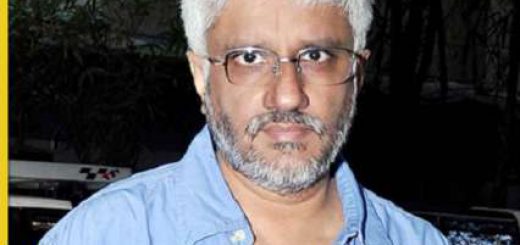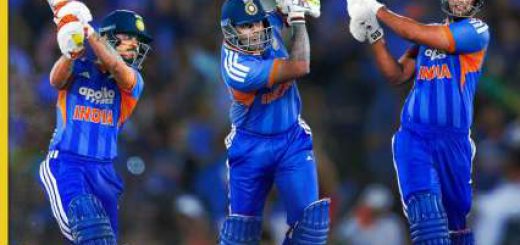Size matters, or does it?
Very few of these Kiwis practising at the Melbourne Cricket Ground on Friday rely heavily on clearing the field with big hits. (Source: AP)
Somehow, the World Cup final has been reduced to a matter of real estate. Australian cricketers, present and past, have been suggesting that New Zealand will struggle at the big ground of MCG.
As if Brendon McCullum’s men are hobbits who have never played outside Hobbiton. Considering New Zealand’s real strength is their bowling, a bigger real estate is only going to help them from conceding fewer boundaries and attack constantly.
This is not to say that New Zealand are the frontrunners, of course they aren’t but to keep harping on the size of the ground being the most important thing in this game of skill is ridiculous.
Even in batting, barring McCullum no one else really takes the aerial route. And even with him, the only real danger is the third man fielder. A top-edge might swirl over for a six at Auckland’s Eden Park but it might be a catch down thirdman’s throat at MCG.
Point taken, but where else is the problem?
With the new fielding restrictions, with just two fielders outside the 30-yard circle in the first 10 overs, all McCullum needs to do is to clear that inner ring.
McCullum has just five ODI hundreds and might not last long anyway on Sunday. All New Zealand can realistically hope is that he stays for 10 to 15 overs to do some early damage so that the rest don’t have to worry about the run-rate pressure.
New Zealand isn’t a team of big-hitters, who are at the risk of holing out at deep point or third man. Only McCullum is the dasher; most of the rest are conventional batsmen whose game isn’t anyways dependent on the smaller grounds.
Martin Guptill likes driving straight down the ground, Kane Williamson loves punching square and pushing through the V, Ross Taylor likes dragging the ball to the on side, especially when he is in a scratchy sort of form as he has been in this World Cup, Grant Elliott and Corey Anderson showed in the first semi-final that they have the game to push and drive for singles and can hold back their attacking instincts.
It’s their bowling which has been their real driver and the bigger ground will actually help them. Daniel Vettori can go back to doing what he loves most: bowl a fuller length and deny the batsmen the chance to cut him.
Boult, Southee tag team
The real strength of New Zealand is their new-ball bowling. In Trent Boult and Tim Southee, they have the best attacking pair of the tournament and if there is a bit of swing or seam on offer at MCG, they are going to be a real handful. The bigger boundaries will only help them – they can now bowl the fuller length without worrying it might disappear for a straight six if it doesn’t swing. If there is a potential for the ball to swing a little bit, these two can make life difficult for the Aussies. Just like they did in the previous encounter in this tournament, a game that Michael Clarke has termed as the turning point in Australia’s campaign.
Boult was sensational in that game. In a small ground, he had the courage to hurl it full so that he can get it to swing and harass the Aussies.
Time and again, the batsmen readied for a drive only to find the ball just about shaping past the bat.
With Boult, you don’t see the banana swing; he isn’t like James Anderson who on his best day can get the ball to curve away from middle to outside off. Boult’s swing isn’t as dramatic but he does just about enough to get it past the outside edge or slip it through the bat-and-pad gap.
Size doesn’t matter
Southee can get the ball to jag a bit, in and out, and he too is likely to benefit from the bigger boundary.
Of course, there is huge difference in home and away conditions, of mere familiarity of a ground, and strangeness in a foreign land, or feeling out of comfort zone. That all might come into play to pressurise New Zealand but to reduce the final to real estate isn’t the wisest thing. Sometimes, size doesn’t matter.
Source:: Indian Express







